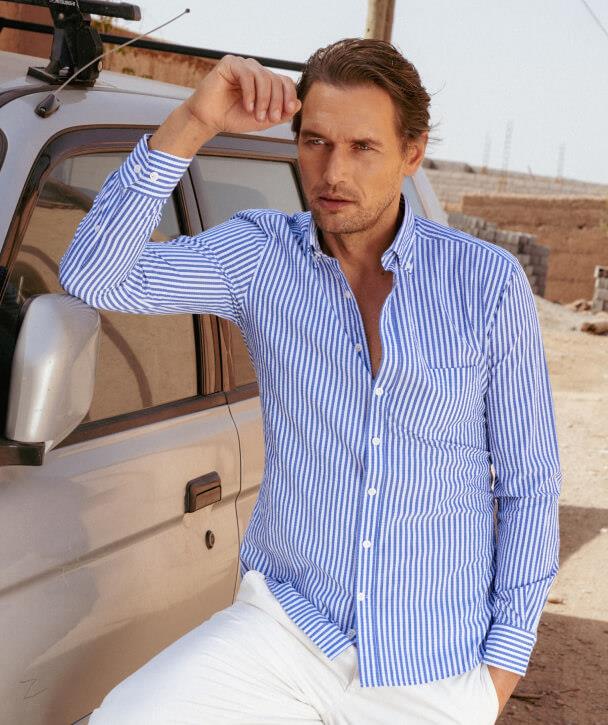_4cigdk2w3h.jpg)
THE MAO COLLAR, BETWEEN ELEGANCE AND CASUALNESS
From Mao Zedong to Mao Pass
The Mao collar may be very popular today, but its origins lie in a highly controversial history. The collar was named after Mao Zedong, former leader of the People's Republic of China. But its origins actually predate the politician. The split collar was first worn by Chinese officials during the Qing dynasty (between 1644 and 1912).
Although it is more commonly worn by men today, this collar also adorned the traditional dresses or qipao of Manchu women at the Chinese court. In France, the controversy is just as political. It was worn by Culture Minister Jack Lang to the National Assembly in 1981, when a tie was compulsory. But while the collar's legacy is steeped in history and controversy, it has now become a classic in men's wardrobes.
Characteristics of the Mao collar
This simple collar stand with rounded corners and no flaps, usually worn open, offers a casual yet distinguished touch. This collar, which is not closed, is more decorative with its non-overlapping panels.
Its versatility makes it suitable for all occasions. Shirts with this collar can be worn with jeans, chinos or under a suit, but always without a tie or bow tie! The Mao look is as distinguished and minimalist as it is casual. Thanks to this versatility, it has gradually become a must-have in men's wardrobes.
_1h07f6cr5g.jpg)
_pjdodnutv8.jpg)
 (1)_nnl70ieig3.jpg)
_euu57cocvx.jpg)


